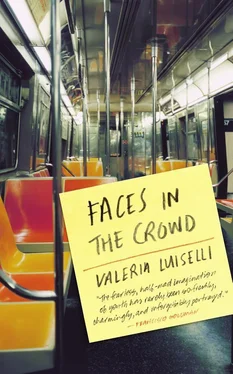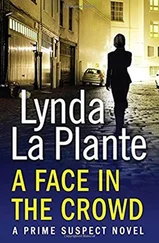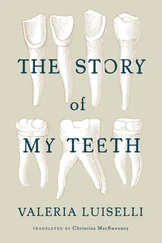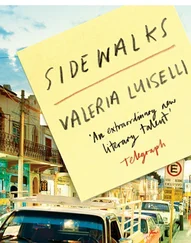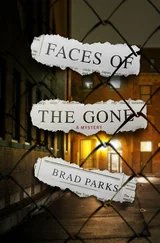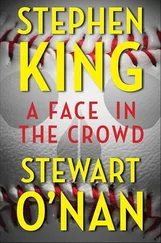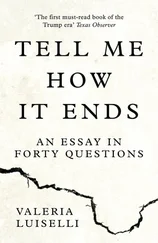*
Federico had one or two virtues. During my first months in Manhattan we used to see each other every week in a diner over on 108th Street. We met because Emilio Amero, who could never manage to stick one idea to another, had asked us both to collaborate with him on the script of his next film. I don’t know what Federico’s motivation was, but I accepted because it was a way to speak Spanish with someone from outside the consulate once a week. It was an unfilmable script about voyages to the moon. I wanted endless journeys in an elevator filling up with eyes; Federico, deeply resentful, rewrote sequences by Buñuel and Dalí in a soft-boiled New York style. And in that way we began to become friends.
“We ended up having so little to talk about that Federico decided to invite another poet to join us, in order to criticize him afterwards. To be honest, that’s how we began to be close friends. We Hispanics have always been good at that. Spanish is a language that lends itself to fault-finding and for that reason we are bad critics and good enemies of our friends. The poet was a thoroughly decent Yankee called Joshua. But we addressed him by his surname: Zvorsky. And, between ourselves, when he wasn’t there, he was simply “Z.” He had a nose as long and phallic as the island of Manhattan and huge egg-shaped spectacles, which made his face look exactly like the sexual organs of a colt. He was beginning a long poem, as long as Ezra Pound’s Cantos, he explained. Federico didn’t understand a single word of what Z said, since he spoke English as if he were saying mass in Yiddish, so I used to translate for them. Not that I understood much. The poem will be called That, explained the poet, because a little boy, when he’s learning how to talk and enumerate the world, always says: “That dog,” “That lollipop” and so on and so forth. He says his book is going to be called That, I explained to Federico, because a little boy always says “That perro” “That paleta” or some such thing.
Federico’s second-greatest virtue was that he always got excited when he grasped a new idea. But then straightaway he’d be filled with disillusion: that was his greatest virtue. When the Yankee poet had gone, we talked about Gide and Valéry. However differently we spoke the language, as Spanish speakers, our close ties with Latin and Greek gave us a sense of superiority: we were the heirs to a noble linguistic past. English, in contrast, was the barbaric bastard son of Latin, constantly gloating over its discoveries: the demiurgic function of articles, inventing the world by enunciating it. The only ones worth the effort are Eliot and Joyce, I used to say. And Williams, Pound, and Dickinson too. Federico liked Langston Hughes and had just discovered Nella Larsen. Our friend Z was a dog and a lollipop but he was also one of the best poets around.
*
Do you think I could have seen Pound in the subway? I asked Federico on the way home after a session at the diner.
How do you mean?
The poet, Ezra Pound.
But he’s in Italy or Paris or I don’t know where.
He’s in Italy, I said, but what does that matter?
Ah, now I understand. Definitely not, it’s impossible for someone like you to have seen him.
Someone like me?
*
Homer believed me when I told him I’d seen Ezra Pound in the subway and that there was a woman I kept seeing on another train. What’s happening, he said, is that you can remember the future too.
But I had not only seen Ezra Pound. I realized one day, during my comings and goings from the consulate, that for some time I’d been seeing a series of people in the subway, and that they weren’t, as you might say, ordinary people, but echoes of people who had perhaps lived in the city above and now only traveled through its overgrown whale’s gut. Among these people was a woman with a brown face and dark shadows under her eyes, whom I saw repeatedly: sometimes on the platform, waiting, at others onboard the train, but always a different one from mine. The woman appeared to me most often in those moments when two trains on parallel tracks are traveling at almost the same speed for a few instants and you can see the other people go past as if you were watching the frames of a celluloid reel.
I wrote a letter to Novo and told him about that woman, who was always wearing a red coat. I told him about her head resting gently against the carriage window, reading, or sometimes just looking into the darkness of the tunnels from the platform, sitting on a wooden chair. I told him about Pound too, and all those people who were and were not in the carriages of the subway, a bit like me. He replied that I was a “subwanker” and that instead of going around looking for ghosts where there weren’t any, I should send him a poem about the subway or something that would fill the pages of the magazine Contemporáneos . And I took note and wrote a poem of over four hundred lines, because I always took note of what Salvador said. But the brown-skinned woman with sad eyes continued appearing to me up to my last day on the island of subwankers.
*
On the windowsill of the room I used to rent in the building opposite Morningside Park, there was a plant pot that looked like a lamp. The pot had oval-shaped green flames and there was an orange tree growing in it. Under the meager shadow of that small tree, I used to write love letters to Clementina Otero, the Gorostiza brothers, Salvador, and Villaurrutia. I told them about my life in the metropolis, again and again, as if to make it my own, conscious, maybe, that happiness also depends on syntax: Dear X, I live at 63 Morningside Ave., again and again, to each of my invisible correspondents.
*
It’s Saturday, my day for seeing the kids. I arrive at my ex-wife’s building on Park Avenue and wave to the doorman from the street. He immediately calls up for the children and comes out to smoke in silence with me until they arrive, full of stupid enthusiasm for life. They tell me that their mother has acquired a new radiogram, that she gave them who knows how many new toys, that they watched a war movie in an enormous cinema, and that the following weekend they’re going to the coast. I take them, one by each hand, to walk in Central Park.
It’s time to go to see the ducks, kids.
We always go to see the ducks, Papa.
So far, I’ve managed to cover up the problem with my sight. When the sun goes down and things start to hide from me, I say to my little girl: Captain, tell me the English names of everything you can see, and she begins: a duck, a lake, a big tree, a little tree. She pronounces the English words with an exaggerated Yankee accent, as high-class Latin American children typically do. She says: that’s a dahk, that’s a layk, that’s a beeg twee, and that’s a lidel twee. And to the older boy, when we’re paying for ice creams at the end of the walk, I say: Soldier, count out the coins and give the ice cream vendor the exact change.
When we’re saying good-bye again at the foot of the steps to the building, I give them each a kiss on the forehead with my eyes closed, so they won’t give me away — I imagine my eyes like two raisins, grayish, wrinkled, small, rotten. Then I take the train back to Philadelphia. In the carriage, I lean my head against the seat and touch my closed lids to see if my eyes are still there. There they are, brimming with water, with the memory of my children like wounded effigies imprinted on them.
*
It’s Sunday and my husband will take the children to the zoo. They’ll take a long walk in Chapultepec Park and the boy will come back, still sweaty and overexcited, to tell me about the elephants, who can never go to bed because they wouldn’t be able to get up again. Afterwards he’ll get a little sad and ask me why: Why can’t the animals leave the zoo or you leave the house, Mama?
Читать дальше
